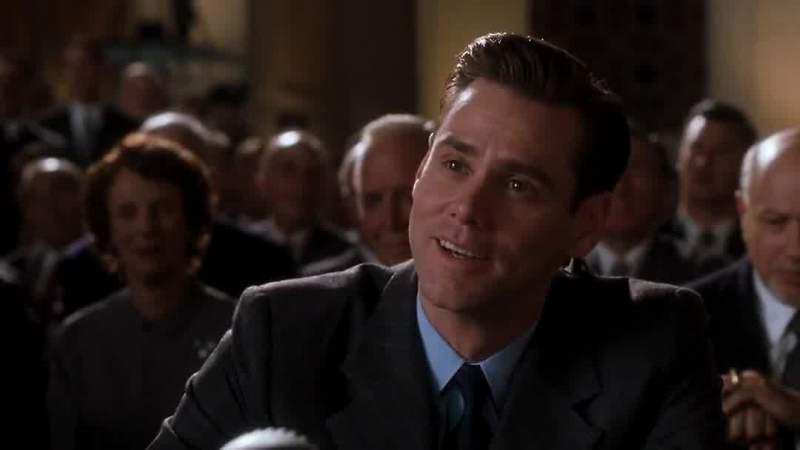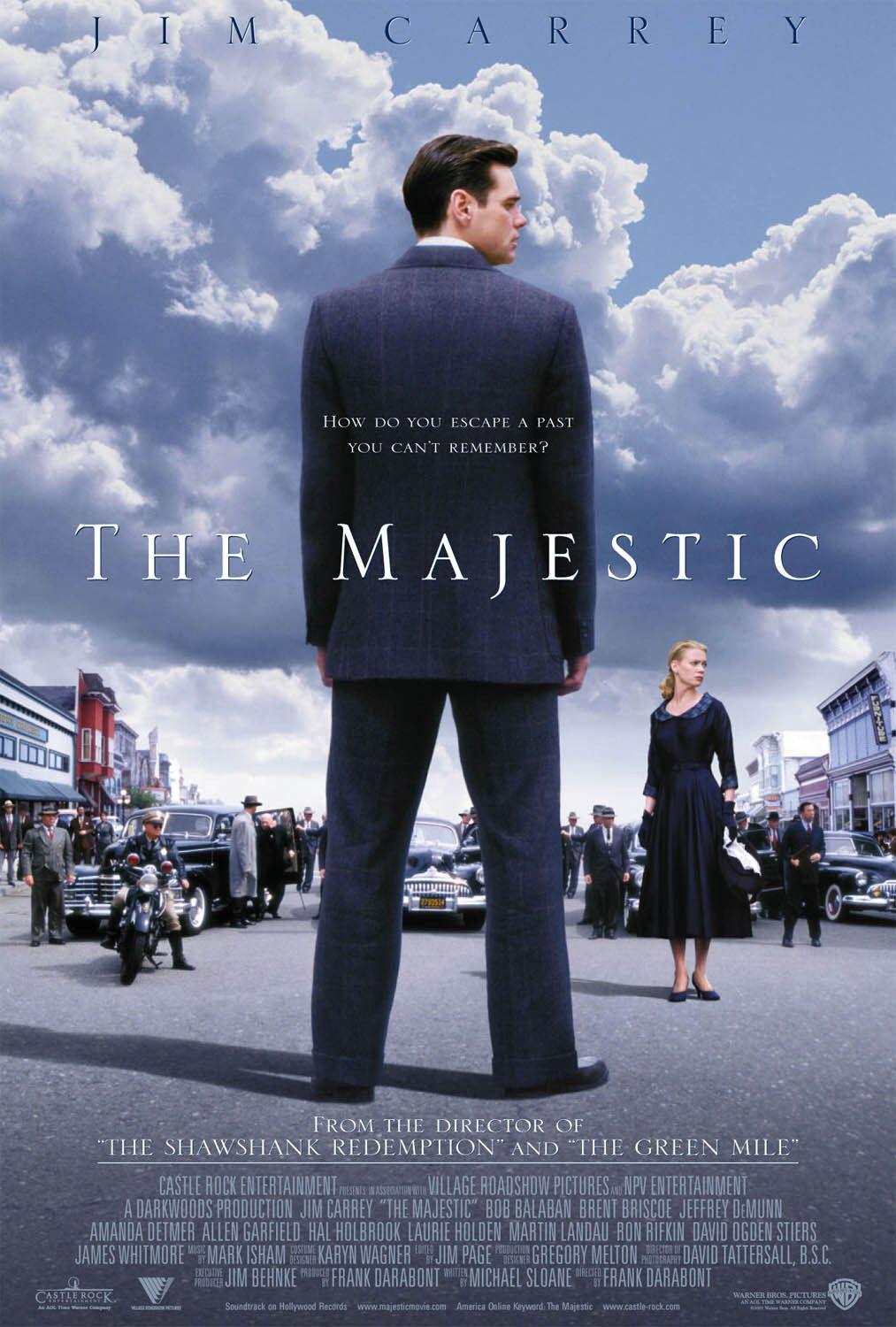The Majestic may risk straying into disorienting keys, but it remains a salute to American patriotism. With leaders poised to execute trial by ordeal beyond the reach of law, this is one film that attempts to use unabashed love for the Constitution and Bill of Rights as its crutch. Now, the film was made during what some term ‘early 1950s’ – and while the echoes of today’s world in that time period change are profoundly disturbing they are equally obvious.
This is not a bleak political film, at least not in its entirety. It is a gentle romantic caper featuring Jim Carrey replete with ancient story telling cliches about amnesia and mistaken identities. It also pays tribute in nostalgic reverence to our WWII veterans by recalling small town movie theaters and their friendly local managers. I think this is as good as any other movie released between now and then.
In my opinion, every review of “The Majestic” will look at it through the lens of Frank Capra's oeuvre, and that is fine by me. In the same way, it is clear that Frank Darabont has set out to make a purposeful shift. It’s nice to reminisce about America’s yesteryear ‘Capra’-tism’ and the patriotism he represented. The myth-mongering of today’s super-duper Rambo ism has made us forget that America has non militaristic reasons for pride: freedom. What if we win again—this time claiming victory while sacrificing our principles? Of what value is winning like this? “The Shawshank Redemption” and “The Green Mile” are both directed by Darabont, who paints on broad canvases populated with characters whom we care about deeply. Carrey (who has never looked better or more sympathetic) plays Peter Appleton, a conceited hair-screen writer who happens to have some marks against his name. Out of sheer nonsense, he attended leftist college political rallies where attending dooms one to being blacklisted by the House Un-American Activities Committee and then subpoenaed to testify.Nobody accepts he was a communist (which wasn’t illegal anyway), but in order to keep his job, he has to attend hearings where he is required to produce a list of “commies” that he must “name". Since he does not know any, the committee will supply names.

Peter seems lost and sad after his starlet girlfriend dumps him and north along the coast he goes. Peter’s Journey starts with him driving over a bridge and the next day waking up with no recollection of who he is or how he got there. Friendly dog walker James Whitmore finds him and guides him toward a small town, which feels strikingly familiar to him. Finally Old Harry Trimble (Martin Landau)who owned the local cinema blurts out: This is his son Luke who after 9 years comes back post war realizing his father thought he lost him during the war.
The town also receives Adele Stanton (Laurie Holden), one of his ex-girlfriends. After losing over 60 young men to the war, the town has sunk into a depression. Regardless, Luke’s return gives them renewed hope for the future. Old Mr. Trimble even decides to reopen the Majestic Theater.
The second act of the film is about Luke's gradual transformation into Peter. The diner and band dance at The Point capture in large part everything that makes Midwestern towns special. Everyone collects at a diner for lunch like in “Capra Town,” participates in big band dances down at The Point, while Luke and Adele stroll home like they are Stewart and Reed once more. Some people refuse to answer including Adele so it remains uncertain if we are actually dealing with her old flame.To avoid revealing plot details, I would like to point out one instance where Michael Sloane’s screenplay truly shines. As is standard with these tales, there comes a moment when we expect Peter’s identity to be revealed. Usually in a rote, formulaic movie, there would come a point where Adele feels deeply aggrieved because she has been deceived and puerile conflict ensues wherein the characters behave as if something needs to be said yet nothing gets said.

Not here. In one of the film's critical climaxes, Peter reveals the truth to Adele before he needs to. Her response does not stem from lacking clarity but rather genuine feelings. The film is honest with its plot and its audience. It even goes so far as to have the villagers ask Luke's conspicuously absent questions about his whereabouts for ten years and whether he has built a family during that span of time. This allows us to substantiate the narrative framework needed for the third act in which Peter returns to Los Angeles for his testimony before the House committee.His testimony brings to mind the Capra heroes like Gary Cooper, Jimmy Stewart, Spencer Tracy and the rest. “That’s the First Amendment, Mr. Chairman. It’s what we’re all about if only we live up to it.” It is also oddly funny (as a matter of fact Peter does defend himself from being a subversive by saying that he was rather hot under the collar.) Lifing this committee is Hal Holbrook as the elder statesman Chairman and Bob Balaban as the nasty little inquisitor (half the committee and frightening images of komunism embodying the cold rush rationale to put off The Bill of Rights).
As with Dharnobat’s other films, “The Majestic” offers layers of depth that allow the viewer to fully immerse themselves in it. Unlike “The Green Mile” which had a runtime of 182 minutes, The Shawshank’s more manageable duration of 143 minutes certainly puts forth enough value for the time invested. When constructed with three acts, every character is carefully introduced and nurtured to elicit audience connection and passion. During active production, there were no indicators of September 11th disaster. Strangely enough though, watching it evokes uncanny feelings of gravitas given the fact it was made two decades ago considering how different things were back then.. One steadfast claim this movie tries to make is depicting Americans’ unwavering trust in their own systems—freedoms and traditional structures offered are deemed impenetrable by any possible danger posed outside them.


